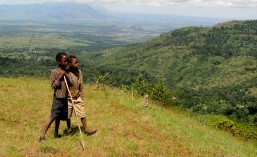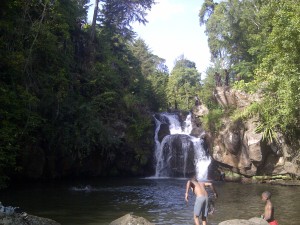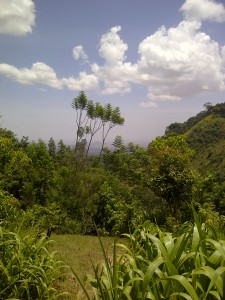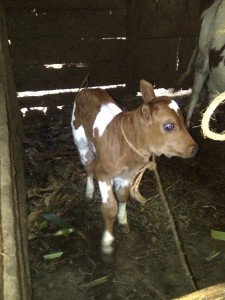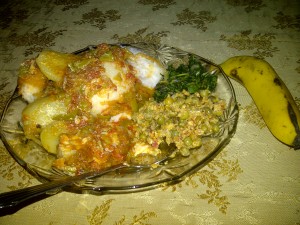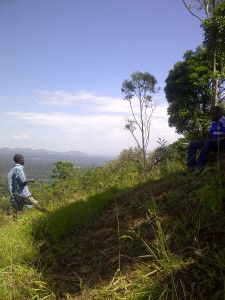I have to give some credit to my old roommate Mr. Jesse Hugo, Masters in Urban Planning, for being the first person to explain many of these ideas to me. If you want him to plan your urban area just send him an email.
There is something much more satisfying about the scale communities in Tanzania are built to. Because most people don’t own cars everything is built to a “human scale”. In other words, everything you might need on a given day is within walking distance – friends, food, medicine, beer, school, privacy, church, etc. People can – and do – quite easily live their whole lives without using motorized transportation.
Houses are close enough together that neighbors are in shouting distance, but have enough space that everyone can have a small farm and some animals. Streets are wide enough for single lane traffic but are primarily used for foot traffic. There is no “zoning” dictating land use. You are free to use land as you wish. Thus, if a market opportunity comes up people can pursue it from their front lawn or their living room. Many people will set up small vegetable stands on the side of the road or will turn an extra room of their house into a bar or a small shop. Other than meat, fruits, and vegetables most supplies are still shipped in from outside, but the community is much more self-contained than what we find in America.
Look outside your window right now. Any people out there? If you live in a typical American neighborhood there probably aren’t many people who aren’t inside cars or plugged into MP3 players. If you feel like talking to someone or being social what will you do? You probably have a relatively small group of friends you feel comfortable calling and asking to hang out and even then something probably needs to be scheduled – you don’t want to interfere with their lives. When was the last time someone just stopped by and rang your doorbell? Perhaps this is why so many Americans suffer from feelings of depression, loneliness, and isolation. Perhaps this also contributes to a general disregard for the notion of “community” once we leave colleges and other places built on a human scale.
Maybe the best way to explain this is to imagine a Wednesday evening where you’ve gotten off work early and are home at 5pm. What to do? It’s too early for dinner and you’re not sure which of your friends will also be off work already. You could just go to a bar but the likelihood of happening to see someone you know is small and you don’t want to sit and drink alone. Maybe you can go for a walk. That’s nice but if you’re feeling social you probably won’t run into anyone. Television is always tempting.
In Mkyashi you could just walk down the street. You would see plenty of people doing this and that whom you could stop and talk to briefly. Eventually you would walk by some of the usual meeting spots and you would easily be able to see who was hanging out there and was also done with work for the day. You certainly wouldn’t feel isolated.
I could go on giving examples like this. How well do you know your neighbor’s children? What would the effect be on the community if we all knew and cared about our neighbor’s kids more?
I certainly don’t want to be one of those people who travels around the world and talks about how much better everywhere else is than USA. I love the USA and miss it every day. I’m excited to get back home! But there are definitely some pieces of life that just make more sense in other countries. Our preoccupation with large homes, large lawns, large shopping centers, and large cars separates us from our shared humanity and isolates us.
While I wax poetic about the virtues of human scale, many Tanzanians are working hard to achieve the higher status homes and isolation of the United States. New communities are being built based on and American model of development. Jesse explained to me the same thing is happening in Brazil. Many people around the world see America as a dream to achieve and they work towards an “American luxury lifestyle” regardless of whether those status symbols will actually improve their happiness. I like to imagine what a wealthy community in the United States would look like if it was built on a human scale. I think I’d like it. It might look similar to East Nashville or Park Avenue in Winter Park minus the snobbery.
